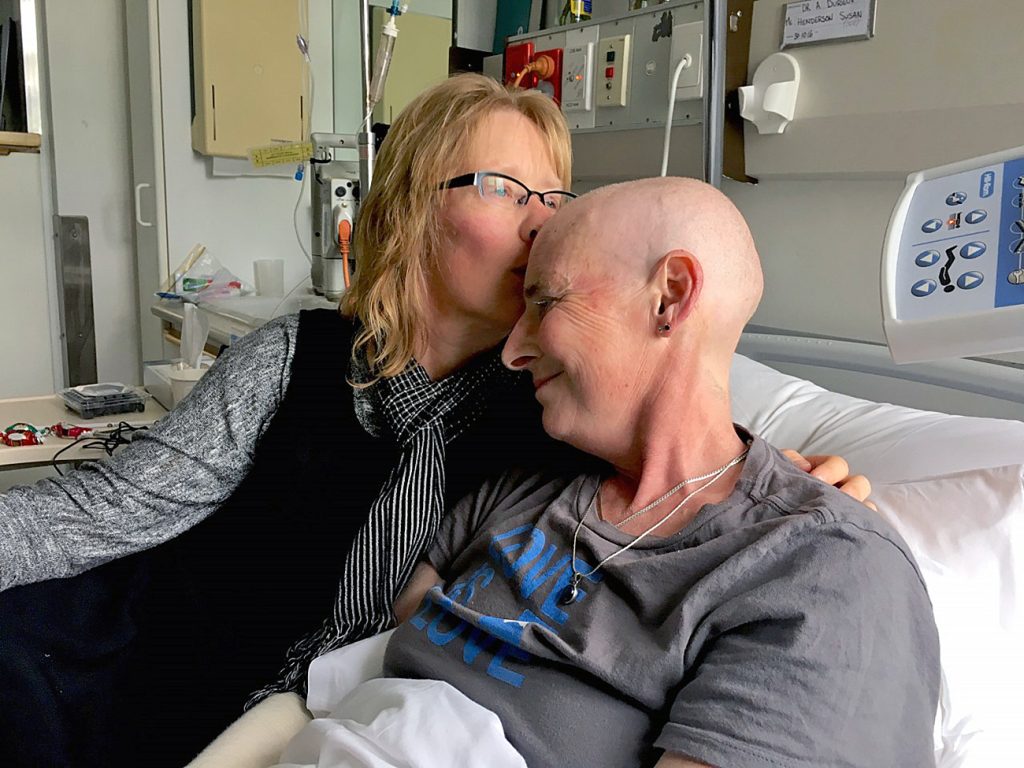Faces of help
Posted on August 8, 2024

How telling stories through video is giving humanity to those giving and receiving end-of-life care
Sharing stories about palliative care, death and bereavement can be a powerful form of healing, connection and learning for many people.
Ulverstone-based support organisation Care Beyond Cure’s ‘Faces of Help’ project is helping local community members through some of the toughest times of their lives, teaching them how to create evocative short movies that capture those emotional experiences on film.
Care Beyond Cure volunteer Mara Schneiders explored the importance of caring, and being cared for, as she faced the loss of her partner Sue in her film Sharing.
“Telling our story and being heard is a really powerful process,” Mara says. “We all share living, and loss and end-of-life and death is part of living.
“Grief – whether it’s from the death of someone, or an illness, or some other change in life – is a shared experience but we don’t always speak about it.
“We don’t always have those moments, either to express ourselves or to hear others, to sit with people and be present for them. And that’s really powerful.
“There’s something quite healing for ourselves in the telling but also in the hearing and the listening. It reminds us of that common experience and common humanity.”
Care Beyond Cure received funding under a joint Primary Health Tasmania/Tasmanian Department of Health grant program for the Faces of Help project, which is based on a Canadian program of the same name.
Compassionate Ottawa’s Faces of Help program saw the creation and sharing of a number of personal stories from people involved in giving and receiving help when dealing with ageing, caregiving, dying and grieving.
Care Beyond Cure engaged a StoryCenter facilitator from Canada to host a series of group and individual sessions online, designed to help community members write and record their personal stories and select treasured images to be incorporated into a short video recording.
A local film producer was also brought in to collaborate with participants, and a local musician recorded original acoustic guitar tracks to accompany each story.
The first phase of the Faces of Help project was a huge success, with a total of five short films completed including Mara’s Sharing and Care Beyond Cure secretary Lynne Jarvis’s contribution Just Us, about the loss of her son Daniel.
Mara subsequently made a second film, Walking with Mabel – the story of how her dog helped her “re-engage and see the beauty in the world” after Sue’s death – as part of extra training she and Lynne undertook to become Community Storytelling Workshop facilitators.
The workshops are designed to provide a safe environment for people who are bereaved or living with a life-limiting diagnosis to share stories while learning the technical skills needed to write, record and edit their own films.
“It doesn’t have to be polished – we’re not pretending that we’re professional film editors,” Mara says.
“We’ve all got a story. We want to support people at each step of the process so they can come up with something they feel comfortable with.
“I shared my films with friends and family, as a way of saying ‘here’s a significant moment in my life’. It’s a nice way to connect with your own network.”
The Faces of Help films and other resources including a Leader Discussion Guide can be used as discussion-starters among community groups, and can be accessed via carebeyondcure.com.au/faces-of-help-digital-stories
Palliative care grants program
In 2023, a grants program was launched to build better awareness and understanding of palliative and end-of-life care, and to improve the quality of care.
The grants program was an initiative of Primary Health Tasmania and the Tasmanian Department of Health, with funding from the Australian and Tasmanian governments.
In round one, six care and support providers were awarded grants to improve the quality of services for people living with a life-limiting condition.
In round two, a further 10 grants were awarded to local not-for-profit community-based organisations to help build social connections and facilitate opportunities for conversations around the topics of death and dying.
In the next few pages, we explore two of the projects funded under the grants program – projects which continue today.
This story features in Issue 18 of our Primary Health Matters magazine. Click here to read the rest of the issue.
